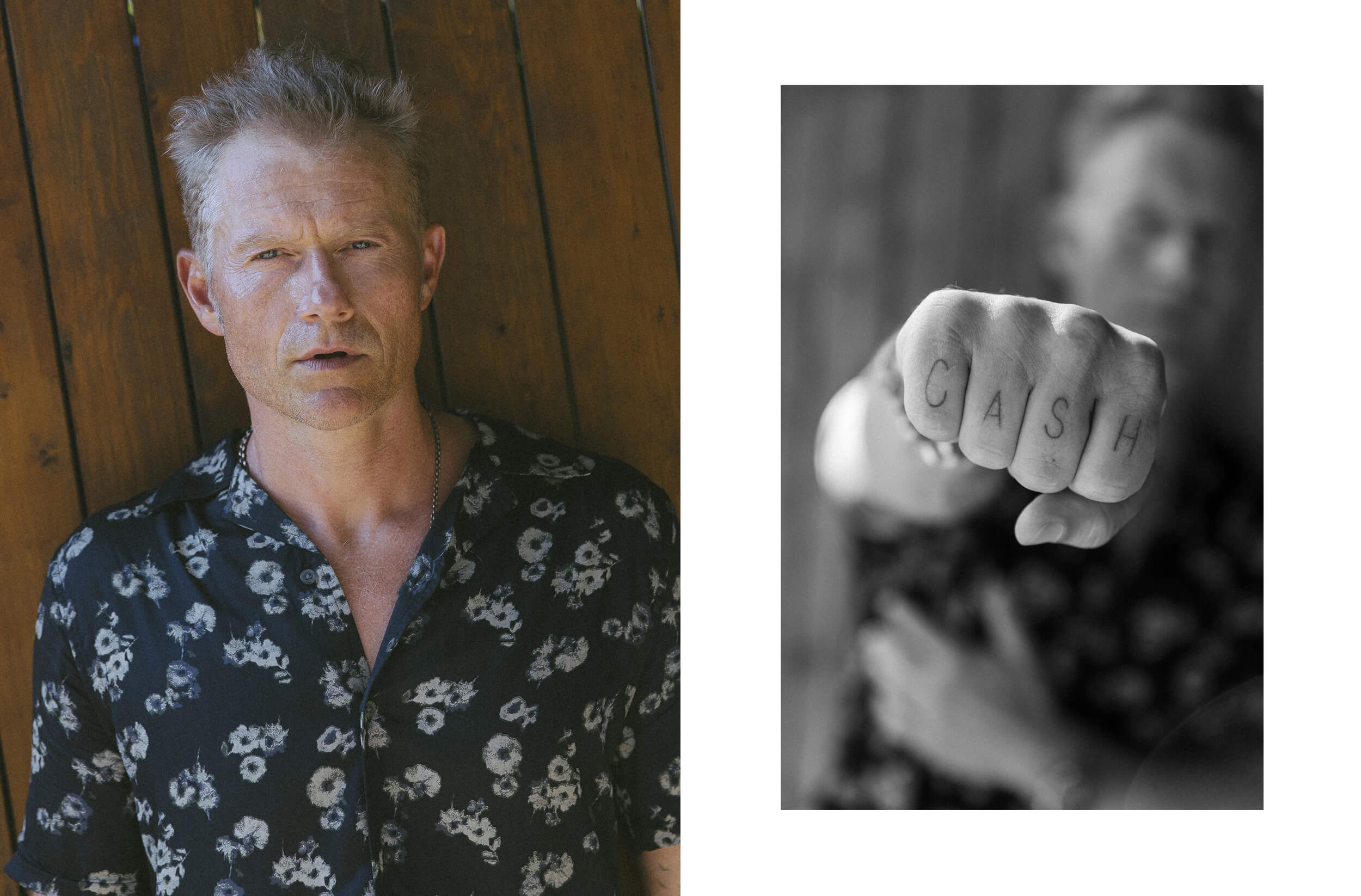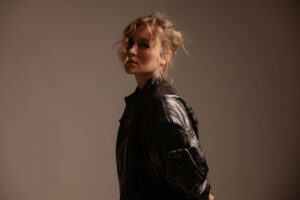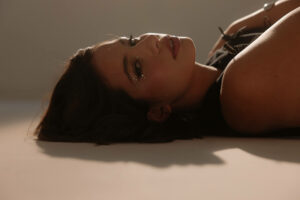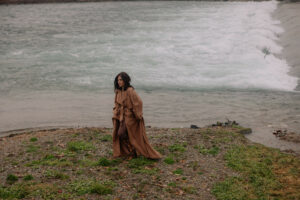With the premiere of “King Ivory” at the Venice Film Festival, James Badge Dale returns to the independent film scene with a gritty, powerful performance.
Thanks to his versatility and deep connection to his roles, James has built a reputation for choosing projects that challenge him both artistically and personally. In our inspiring chat, he reflects on the process of bringing Layne West, a law enforcement officer caught in the tense world of fentanyl trafficking, to life on screen, and highlights the importance of collaboration, the weight of storytelling, and how his own life experiences shaped his approach to the character. With honesty and introspection, James shares his thoughts on the emotional demands of acting, the state of the opioid crisis in the U.S., and the delicate balance between instinct and preparation, opening up about the film’s raw impact and the lessons it has left him with, both as an actor and as a person.
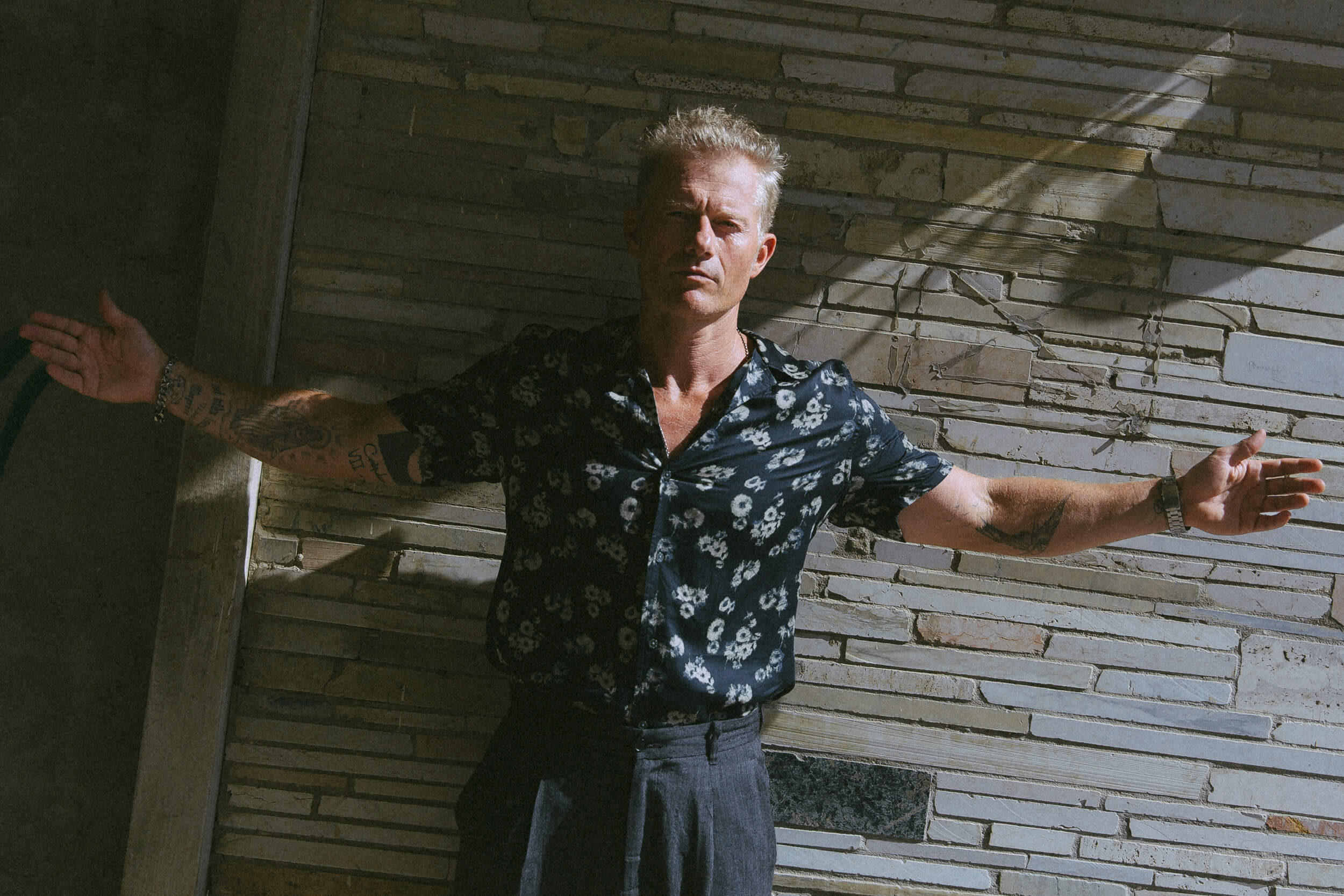
What’s your first cinema memory?
In the theatre, with my mother. I believe the movie was “Return of the Jedi”, I must have been four. I remember getting lost – I mean, this was the early 80s in New York City, and that experience of sitting in a movie theatre was larger than life. I remember my mother being afraid that I would be afraid at certain points and she tried to cover my eyes and I kept ripping her hands away from my eyes to see.
The cinema is a special place, there’s nothing like that.
Speaking of your character in “King Ivory”, Layne West: what drew you to this role?
Sometimes it’s not the role, sometimes it’s the overall. It’s the director, it’s the people that you work with. In this case, I was taken by John Swab‘s writing.
I love doing independent films, I love the creative freedom that you get in independent films, I love taking risks, taking a chance because you do a lot of these movies and most of the time no one ever sees them, but every once in a while, they do, and you end up here, every once in a while, you end up at film festivals and people see your film and you get to meet other filmmakers.The ceiling is very high and I think you live and die by your own work in independent film, whereas when you’re doing corporate work it’s a different thing.
So, for “King Ivory” for me it was the people.
Your character faces intense pressure in the film. How did you work to convey that tension on screen?
I just saw the film for the first time last night – what an experience.
A lot of times you don’t know when you’re filming what will be crafted, and I was so taken aback and the film was so tense, it was a pressure cooker, a boiler and I was so impressed by everyone’s work, by John Swab and our filmmaking team who built this pressure and that everyone was on the same page and we were all playing the same notes.
Sometimes people making films are like an orchestra playing music.
Yes! Filmmaking is a collaborative process: if you write a script and you’re directing, you are giving me these script pages and I run them through my filter but then I’m giving them back to you and you do whatever you want with them. To get back to your question, you have to personalize the work. I have to give you something, my filter is my own and your filter is your own and everyone has a different filter, so I take that and I run this through this filter: what I’m giving back to you is personal, and that’s what everyone put into this film. We all had a viewpoint.
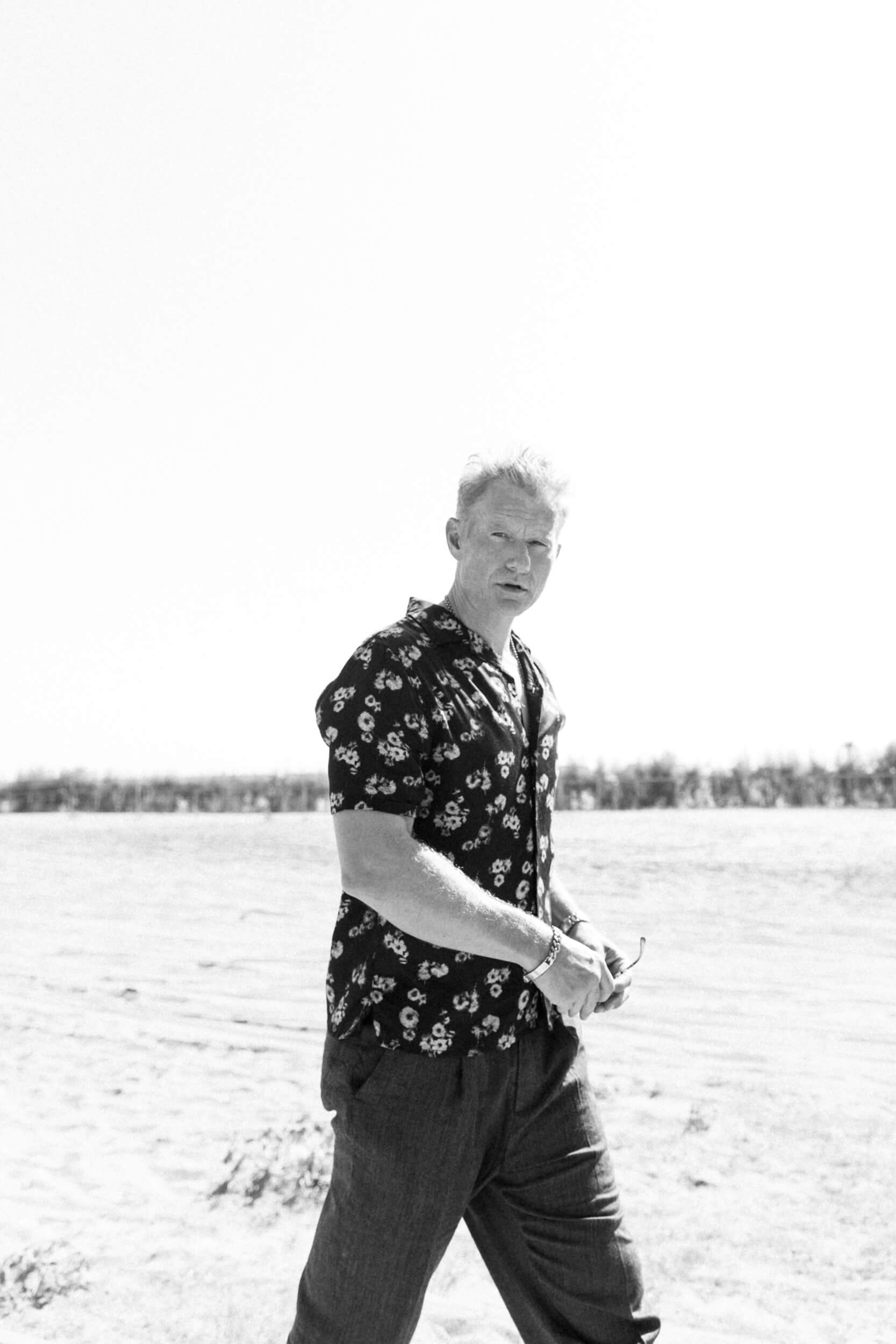
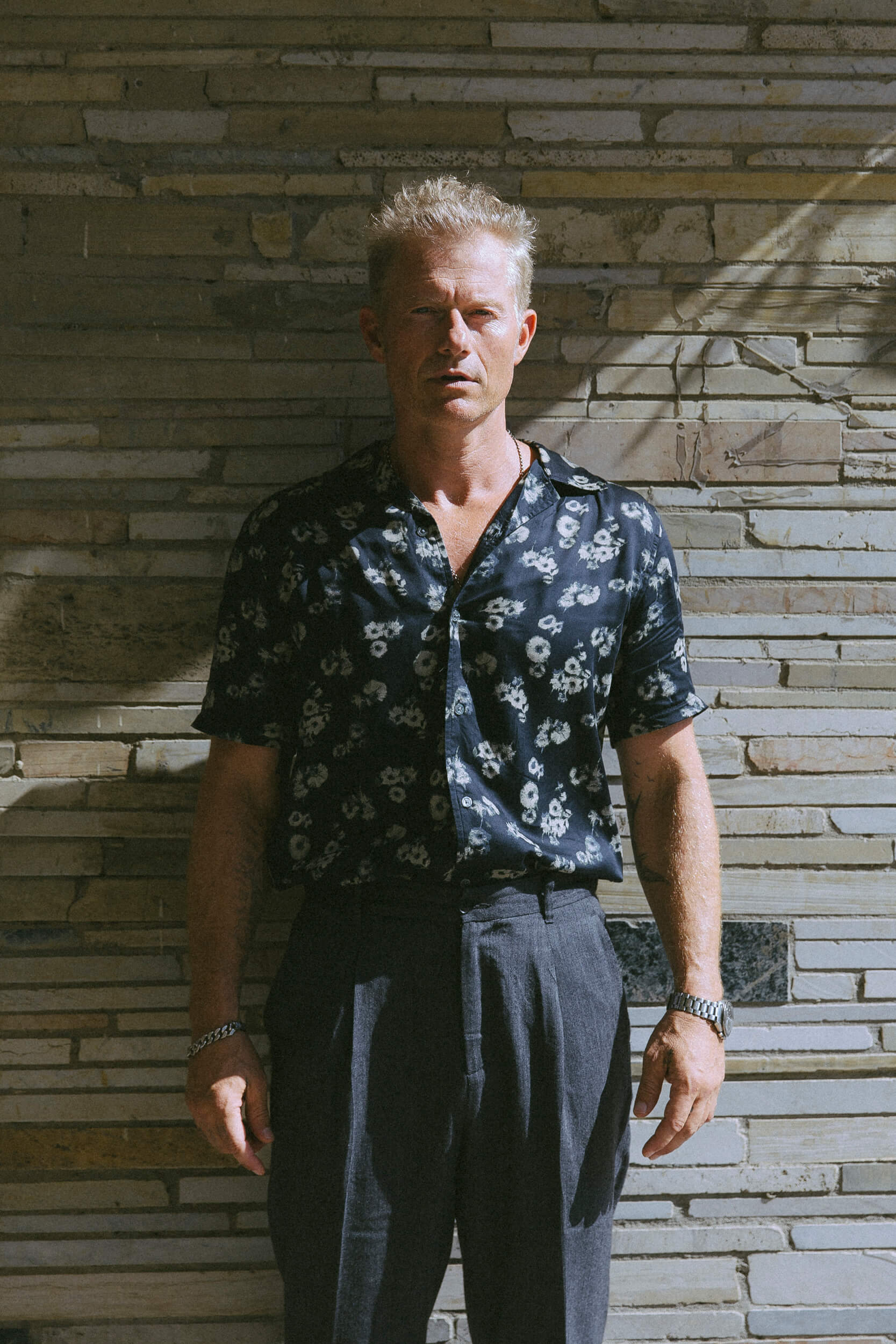
The film is based on extensive research involving Oklahoma law enforcement and gang members. How did this real-world basis impact your approach to the character?
John is from Tulsa, Oklahoma, and has a long history there and he knows a lot of people. He’s been through a lot in his life, and a lot of people wanted to help him, so, we had access to everybody.
I have a history also, I have personal stuff, I’ve also traveled around and made movies for 20 years, I’ve met a lot of people, I’ve trained in different things. You know, we all come with different sets of skills and tools, and we’re mixing them all together, so when we were on set, I was sitting there with the smart guys, talking to the gangsters.
There is a fine line between research preparation and over-intellectualizing, do you know what I mean? Some people from other films asked me to stop intellectualizing, saying to me, “Hey man, I trust you. I need you to run with this now. You don’t need to be thinking about all your research, you need to get out of your head”. So, when we were making this film, having all these elements together, it was kind of like a band starting to play music together, like you said, listening to each other and making art.
Did you have any direct interactions with law enforcement or individuals involved in similar cases to prepare for the role?
Yes, but it was also a lifetime of talking to someone.
I’ve spent a lot of time with narcotics officers and with people in general. For this movie, the Tulsa SWAT Team that we would hang out with brings another element of reality to it and what is striking to me and it always seems to be striking to me, having done a lot of war films and a lot of jobs where people are put into extreme circumstances, is the level of what they call “gallows humor”, which is almost like “laughing in the face of death”.
It’s hard out there, but thanks to the survival instinct, that thing in you that in order to keep from going down into the darkness, you’re laughing about it and you’re continuing on. That also relates to “King Ivory”, although, as the darkness starts to creep over, it’s not funny anymore. But at what point is it not funny anymore?
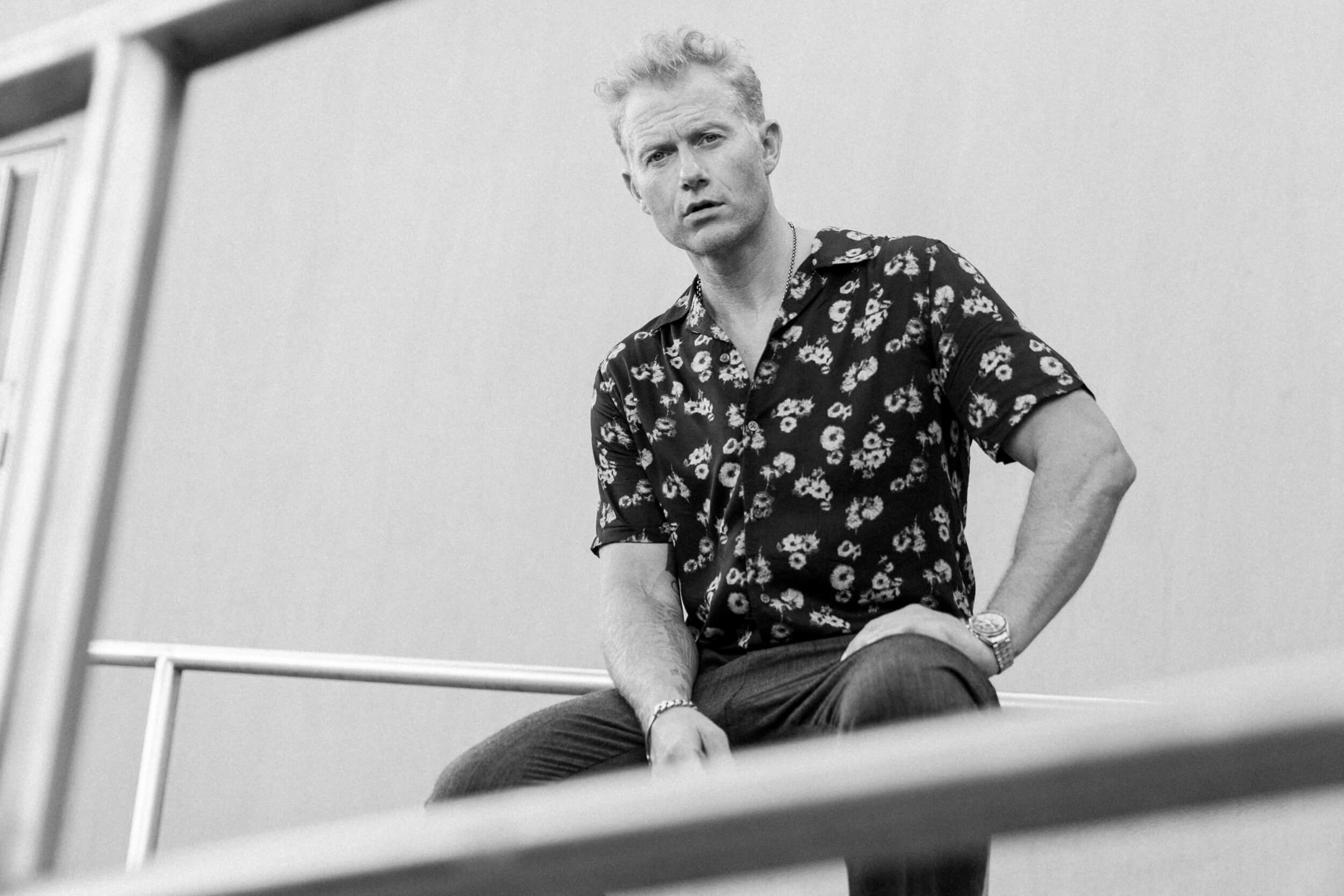
“But at what point is it not funny anymore?”
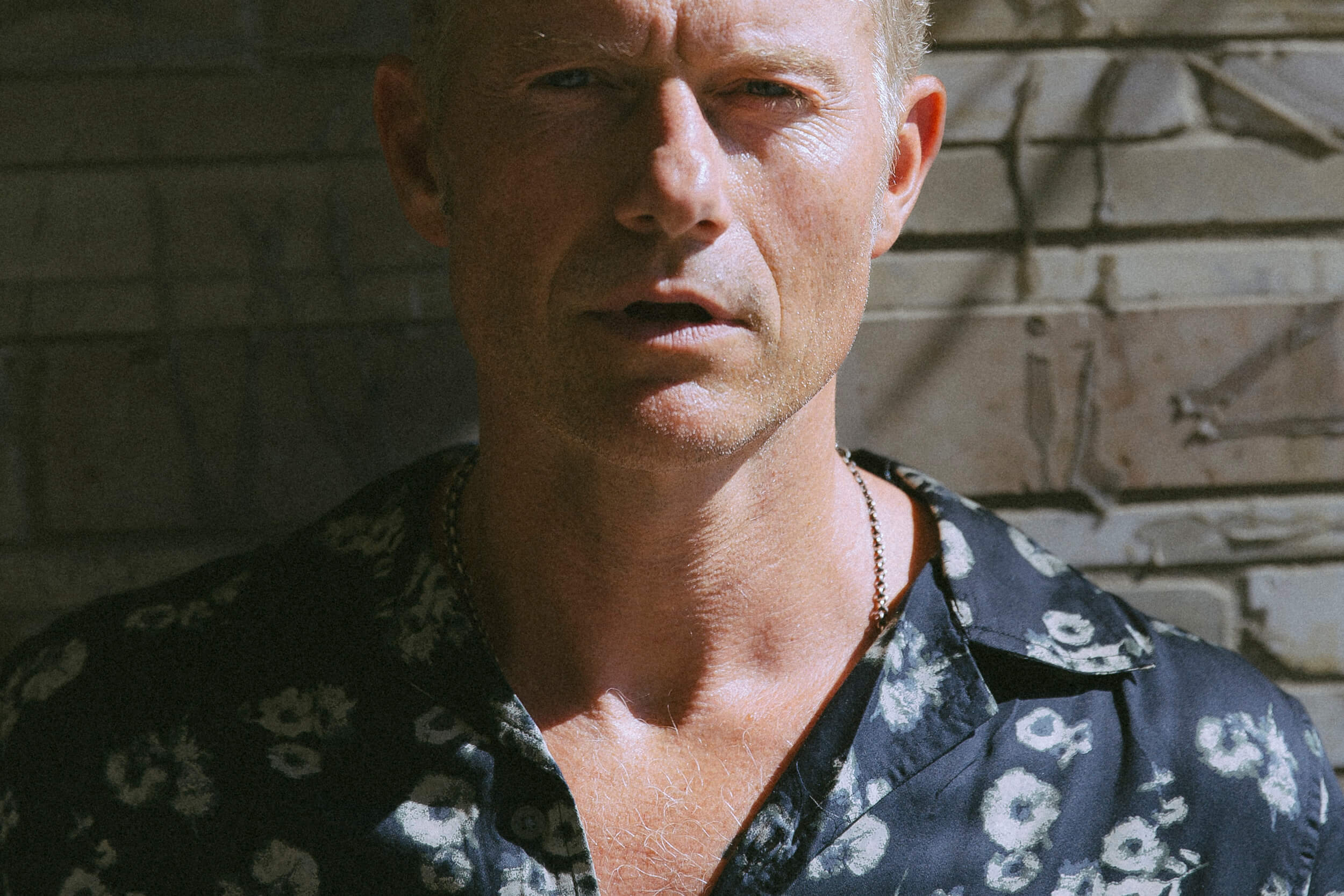
Yeah, also because fentanyl trafficking is a major issue in the U.S. still today. How do you hope “King Ivory” will impact the conversation around this crisis?
I walked out of the movie theater last night thinking about my son.
I have a two-and-a-half-year-old son and another boy on the way. And in the United States right now it is beyond crisis level: it’s not only the fentanyl aspect of it, it’s the mental health aspect of it. So, I’m scared for my children. Plus, I myself had an interesting childhood: I was not easy on my parents, so the movie recalled personal stuff for me.
I’m playing a police officer, but I’m also and most importantly playing a human being, and what I would hope is that people sit down and the film plays in the cinema like it did last night and as a group we sit and we don’t only watch it, we also get gut punched because our film is a gut punch. When I was watching it last night, I had feelings of sickness in my stomach because of how real and frightening and tragic this is.
I’m so proud of the people that I’ve worked with to put this piece out, I think this is an important film and everyone can have their opinion because I don’t care if people like things or not: what matters is, “Does it touch you?”. The worst thing you can say to me is that it was “middle of the road” – I want you to feel something and if you fucking feel something and you hate it, I did my job. My job is to create something in you and I hope we’ve done that.
I think you have. What did you learn from working on “King Ivory” that you’ll carry into future projects and your life as well?
It’s a funny thing with filmmaking: it takes a chunk of you. Everything takes a chunk of you and how much you give. Obviously, I can’t speak for everybody, I can only speak for myself. Maybe I take my job too seriously sometimes, though I try not to, but there’s a piece of me out there when I make a movie. And a role also informs the next one because after I finish filming, I’m not the same person.
Among the lessons I learned and the things that I’ve taken specifically, maybe there’s vulnerability because that was something that I tried to work on, along with approaching it from the side. Because if you’re thinking to yourself, “I’m playing the cop”, for example, it’s a trap, if you’re thinking you’re playing a tough guy, it’s a trap.
The question I try to ask myself when preparing for a role is, “What angle can I come at this with that is my own, that is personal?”. For “King Ivory” I had to work on vulnerability. And I’m trying to be a more vulnerable person in my life also, in my day-to-day interactions with my family.
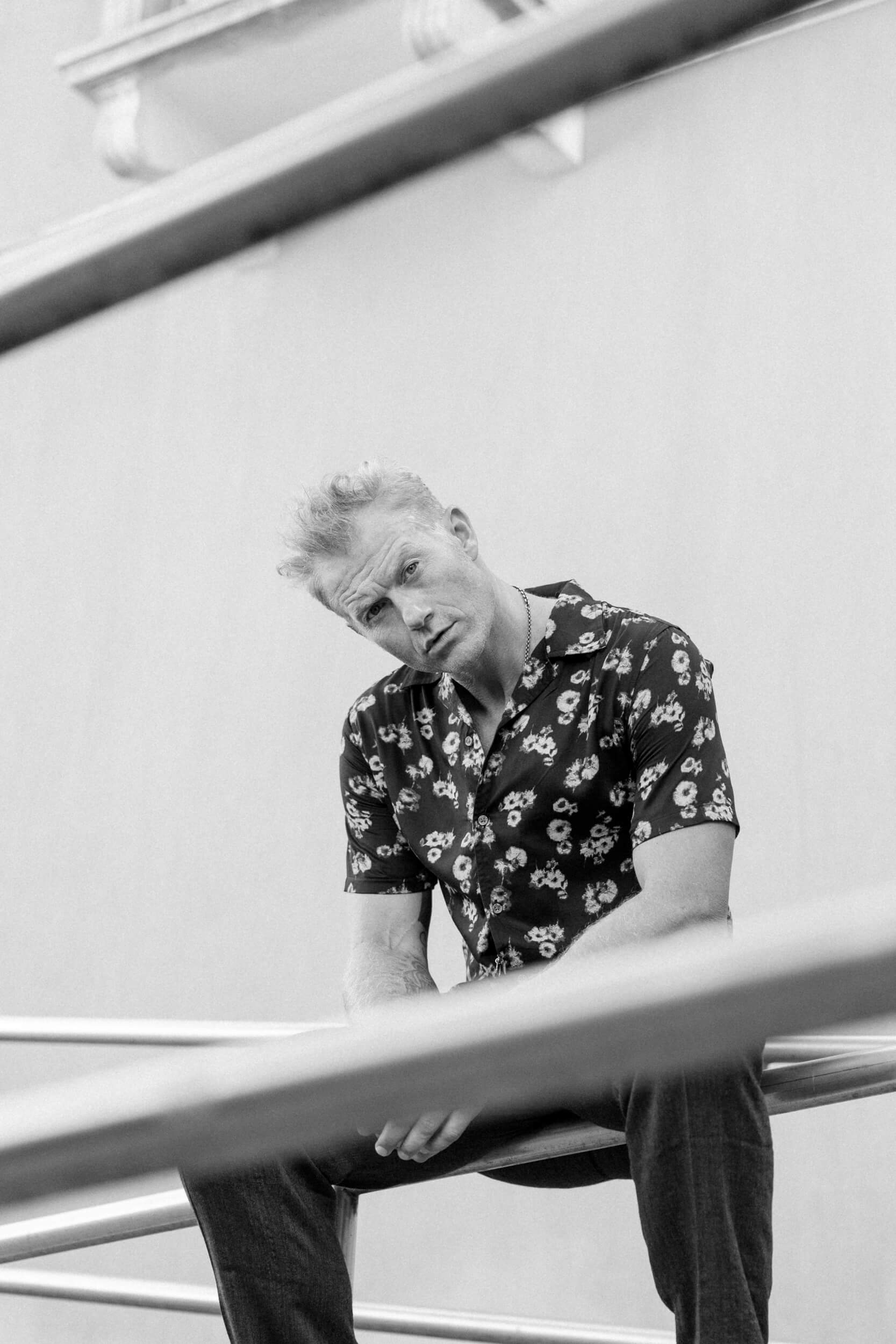
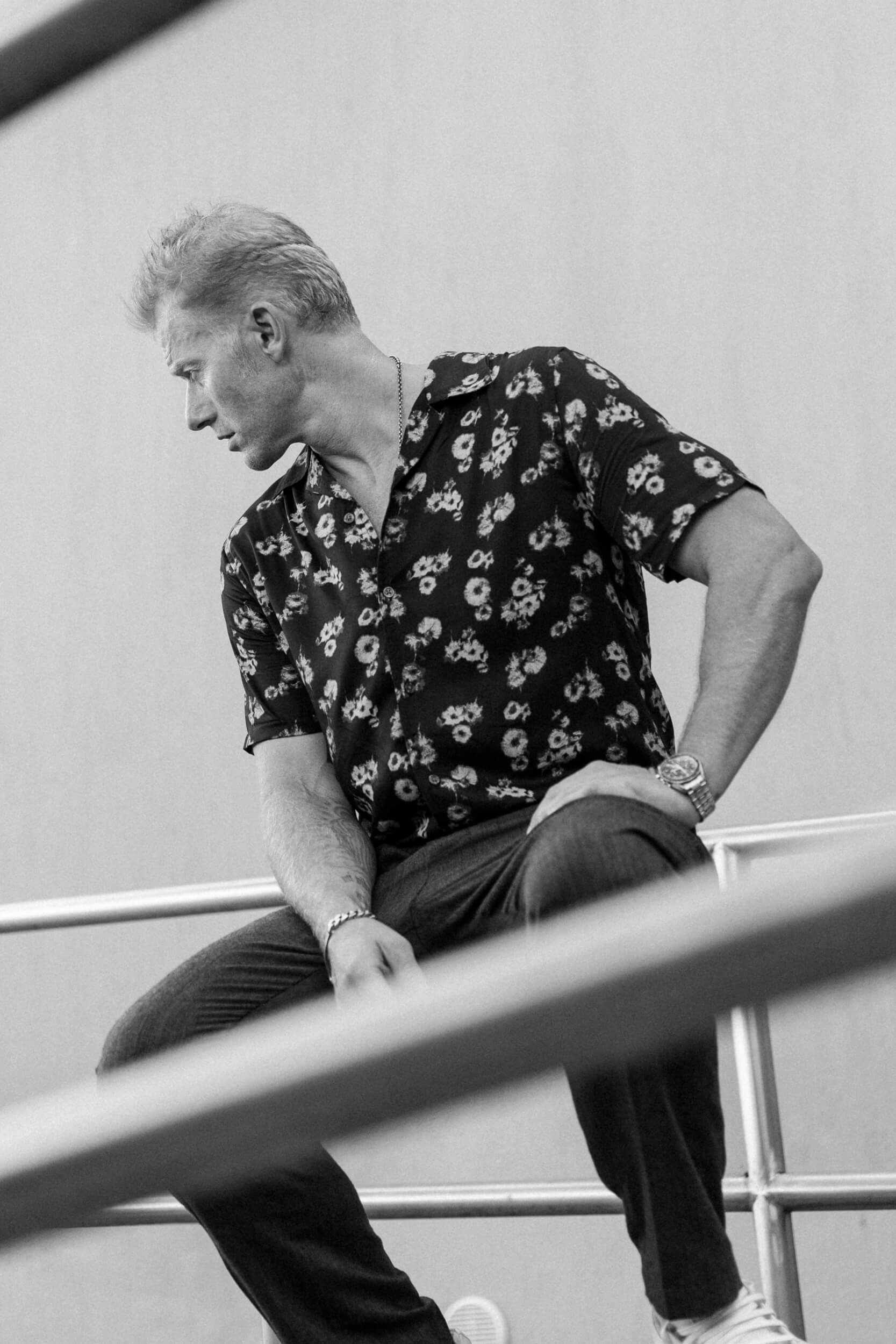
When you act, you play a lot of roles, and you get to know yourself better from project to project, exploring the many different sides of you. What’s the latest thing you’ve discovered about yourself through your job?
You know, over the course of this career, you cross over a certain point where you start having more fun, after the initial period when you feel kind of scared. Sure, the fear is always there now but I love it, I love what we do, I love the tightrope aspect of it, I love showing up to work and discovering what you brought to it. When you’re a young actor that can be scary because it’s scary when someone turns on a camera and asks you to act like a normal human being.
Do you mean when you’re auditioning?
Well, auditioning is a whole other level. Actually, auditioning has changed now because it’s not in person anymore, we’re making tapes on our phones and sending them in, which takes away that personal aspect of it. When you’re auditioning, you go through it and you start to understand that it’s actually not about you, but it’s about the other people, so you stop worrying about yourself. It’s a really good feeling to stop worrying about yourself.
That’s when you find a method of working that works for you and you’re working with people that you’d like to work with. But you have to do a lot of homework to get to the place where you can actually release it and then have fun and then stay in it. That’s the place where I feel good now.
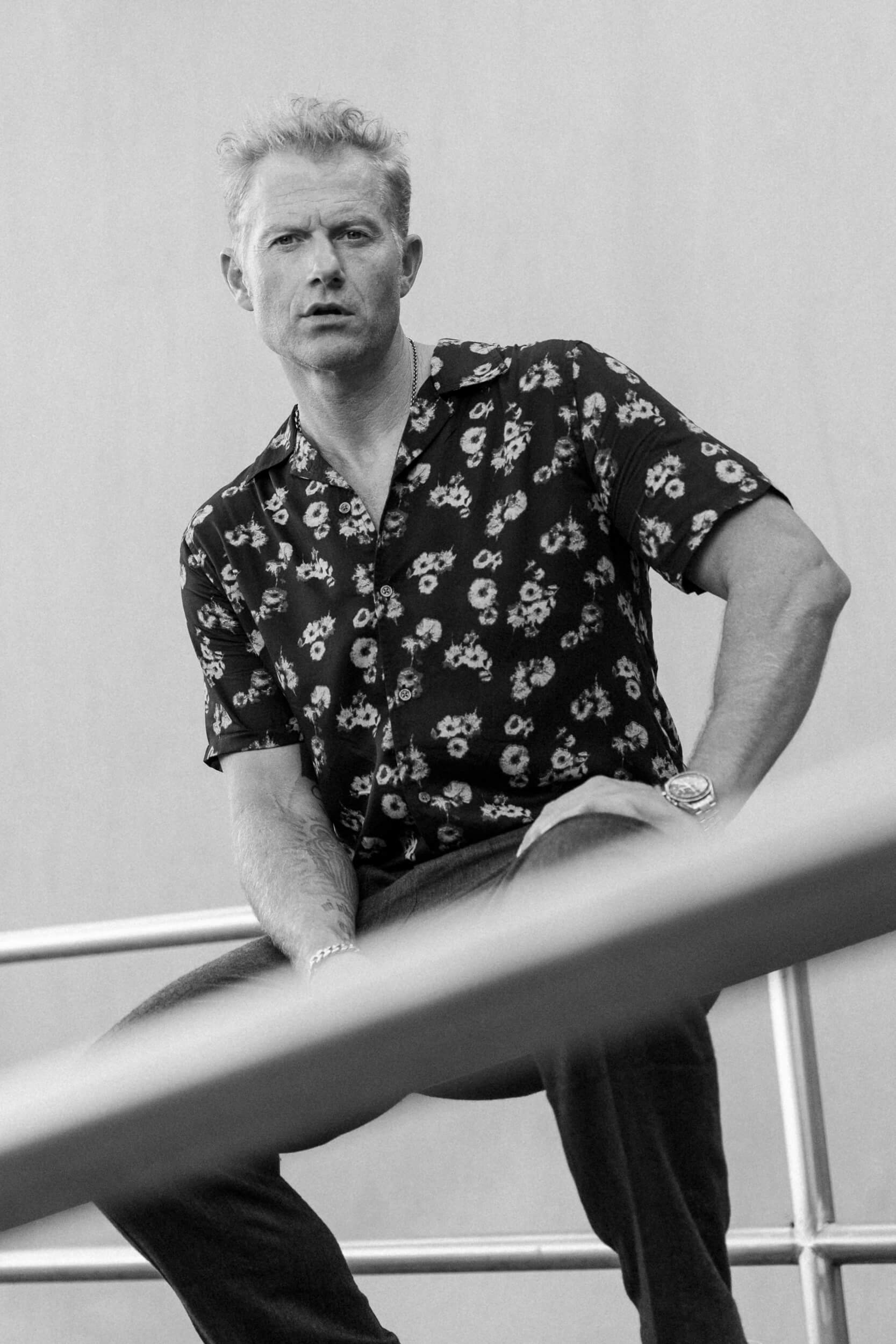
Do you usually tend to be more instinctive or rational when preparing and playing a new character?
It’s a combo.
The preparation is everything to me, and that’s rational, that is table work, as we like to call it. We sit down in the theater and we talk about the script. Actually, in films, you don’t do a lot of table work, but in theater, you spend a week or two sitting at the table and then you get up on your feet. It’s at that moment that it becomes instinctual. So, in films, I break things down over and over again, I read the script every day over and over again, I learn the dialogues, I learn everything because it’s music and I need to know what movie we’re all in, and ask myself, “What notes are you playing?” because if I’m playing a different song, things are not going to mesh together.
It’s like we’re pirates, and we’re on the ocean – you see the ship on the horizon and that’s the character, that’s the movie; you spend time, like weeks, just creeping closer and closer and then pirates have these ropes with these hooks on them, and I’m watching the ship and then when I’m making a personal relation, I’m throwing that hook and I’m grabbing on to it and I’m pulling them closer and I’m making personalization, and then I’m cutting parts of myself out. And you have to trust it, you have to live, you have to trust you’re a complete human being and know what to take. So, you’re pulling this boat over and jumping on it and taking everyone’s clothes, hoping everyone lives. In my story, everyone lives: we put them all on the boat, we put on the clothes and then we sail the ocean. And everyone thinks that I’m that character, but I’m really just me. You know? I’m really just me. That’s acting. And this is my pirate acting story [laughs].
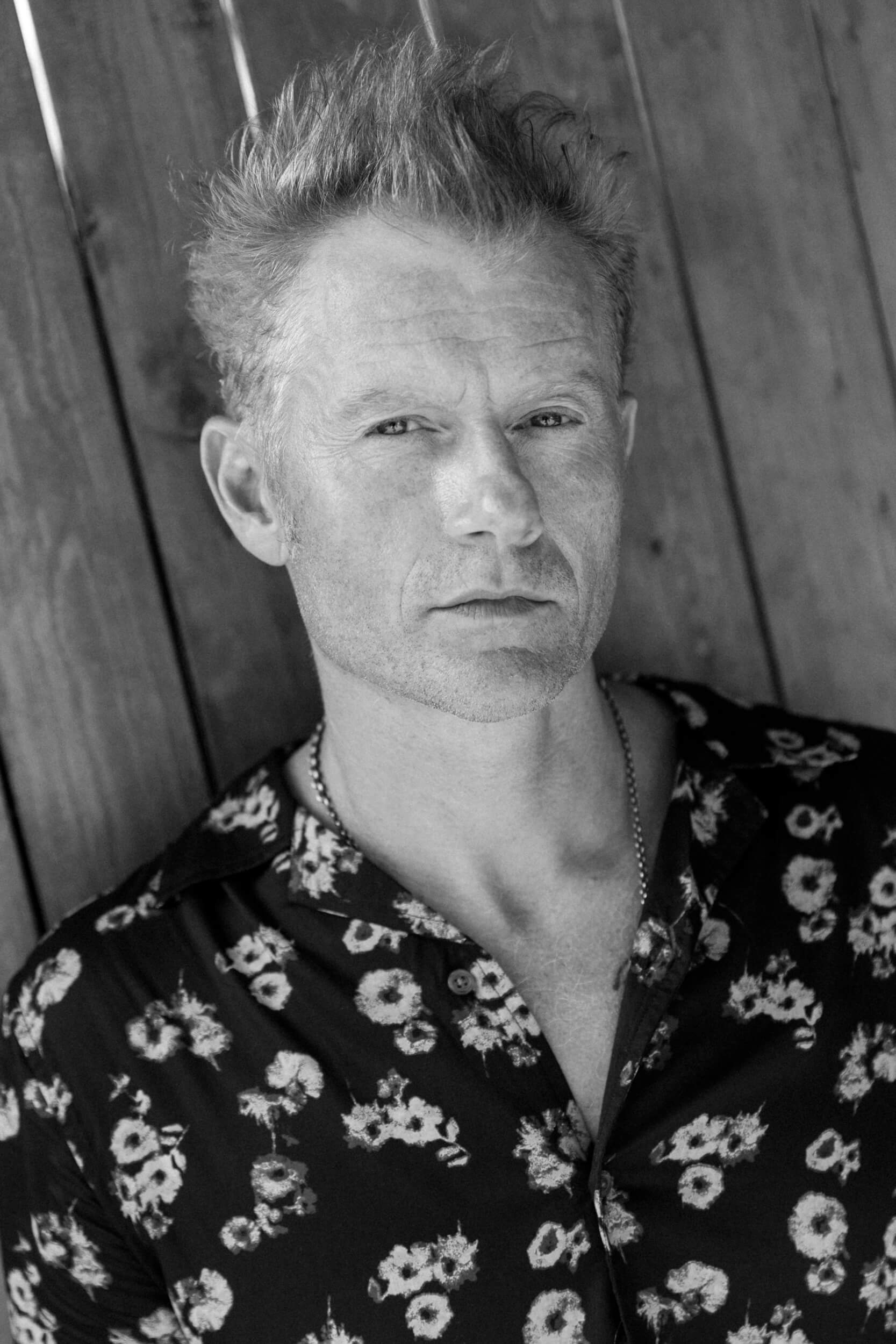
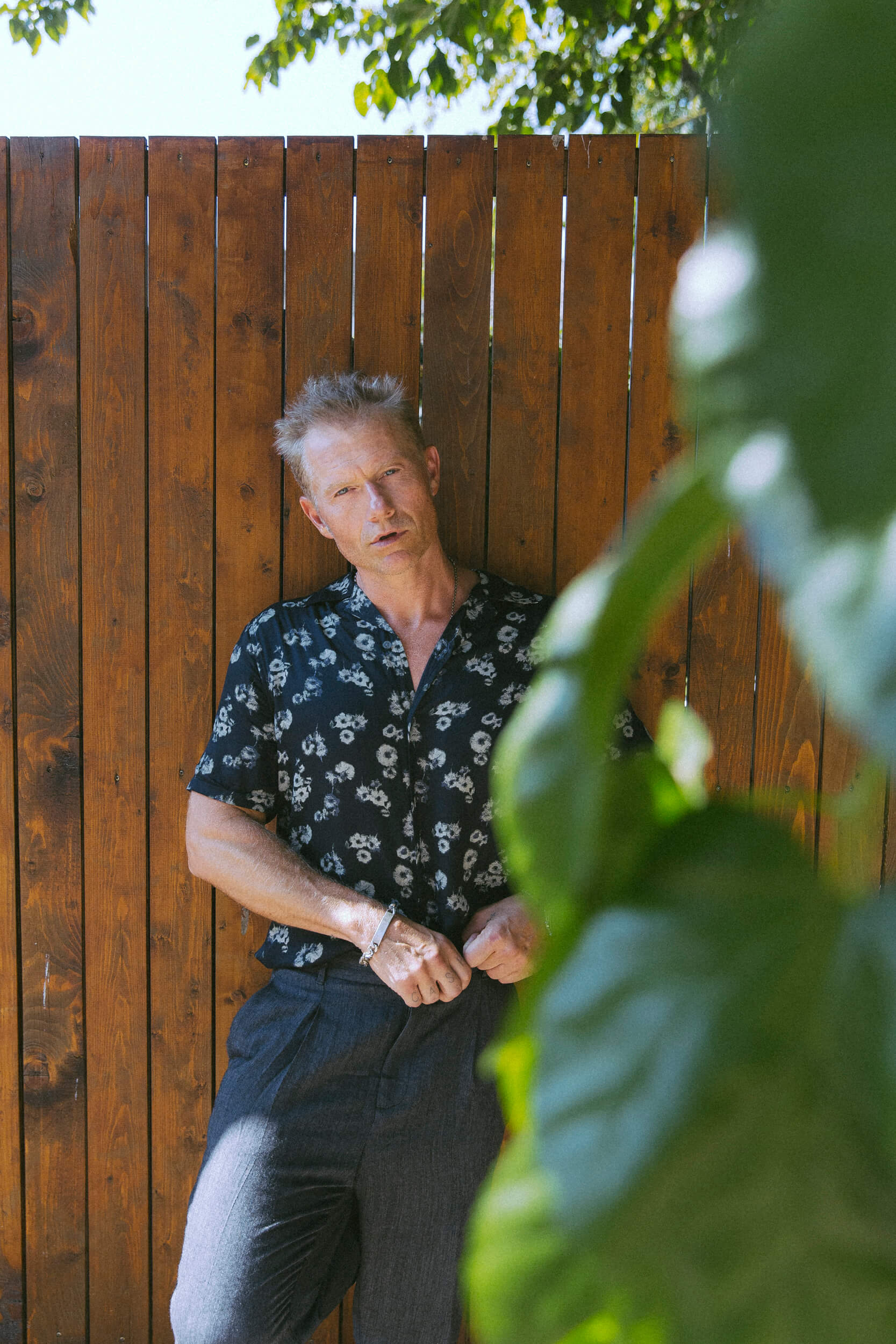
“And this is my pirate acting story”
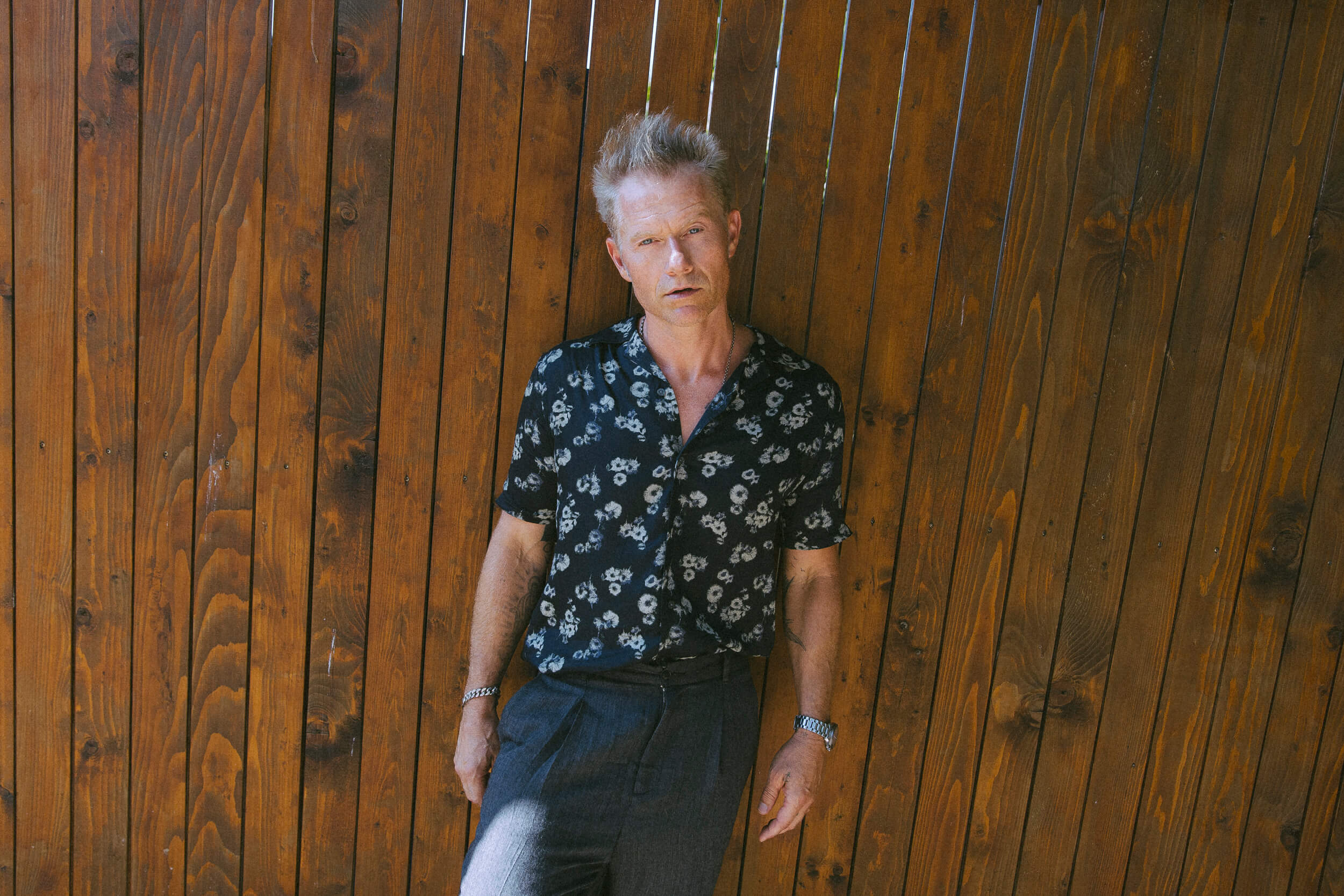
What’s the latest movie or TV show you watched that stayed with you?
“Industry”. It’s a British show and I’ve been really enjoying it, especially the acting in that. Then I just watched the third season of “The Bear”, I love that. You know, TV shows are a longer form of narrative, and I really like today’s TV shows compared to ten years ago’s TV shows.
Yes, because they’re basically movies.
Long movies, yes, and people are taking chances now.
I also thought “Shogun” was great. Anyway, probably I don’t watch as many movies as I should, and it’s a shame because you want to see what other people are doing, you want to see people’s work. I watch things to see how we’ve lit it, how set design works, you know what I mean? Movies and TV shows are a collaborative process, there’s a lot of people working, a lot of people out there. To go back to our movie, I’m really proud of us.
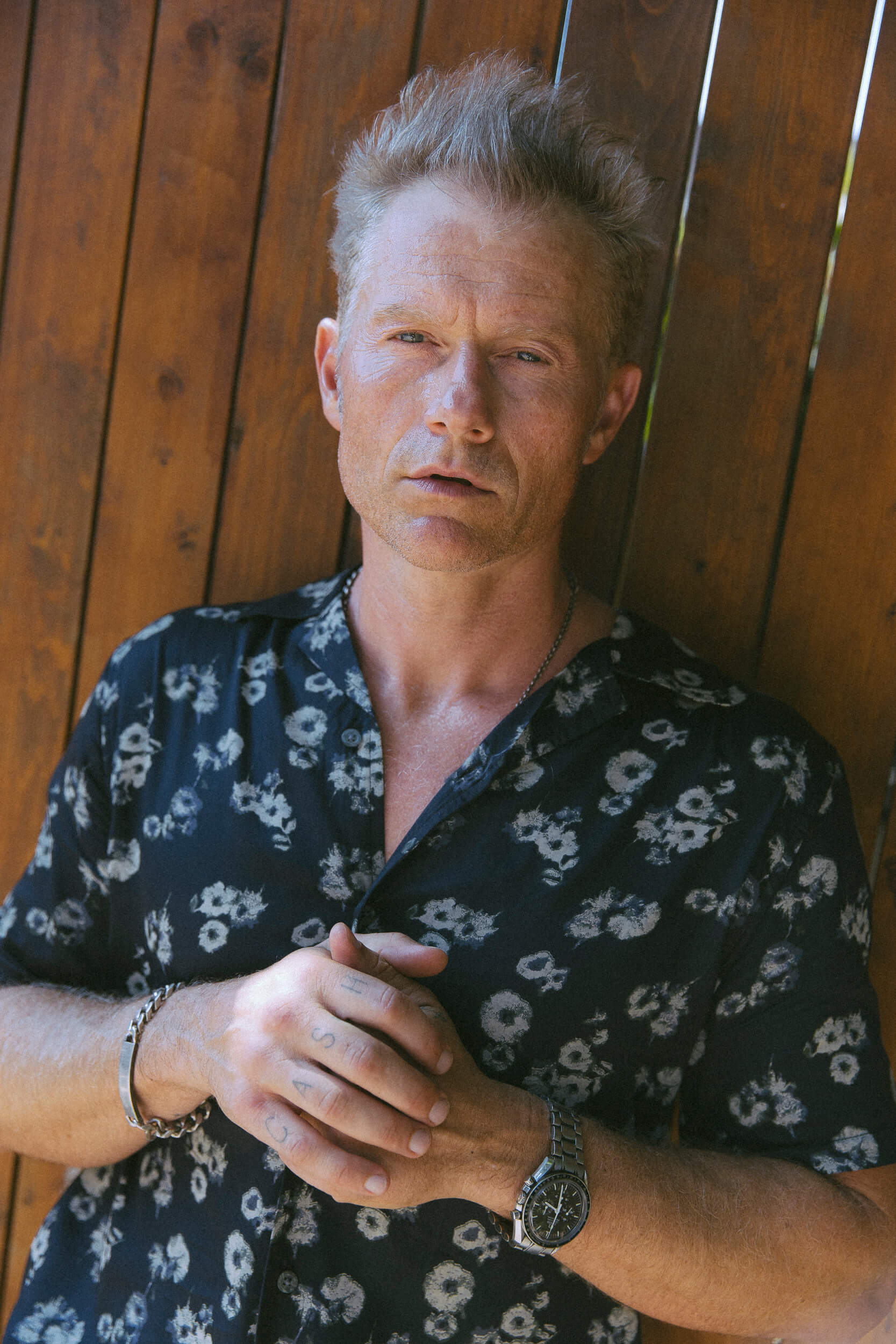
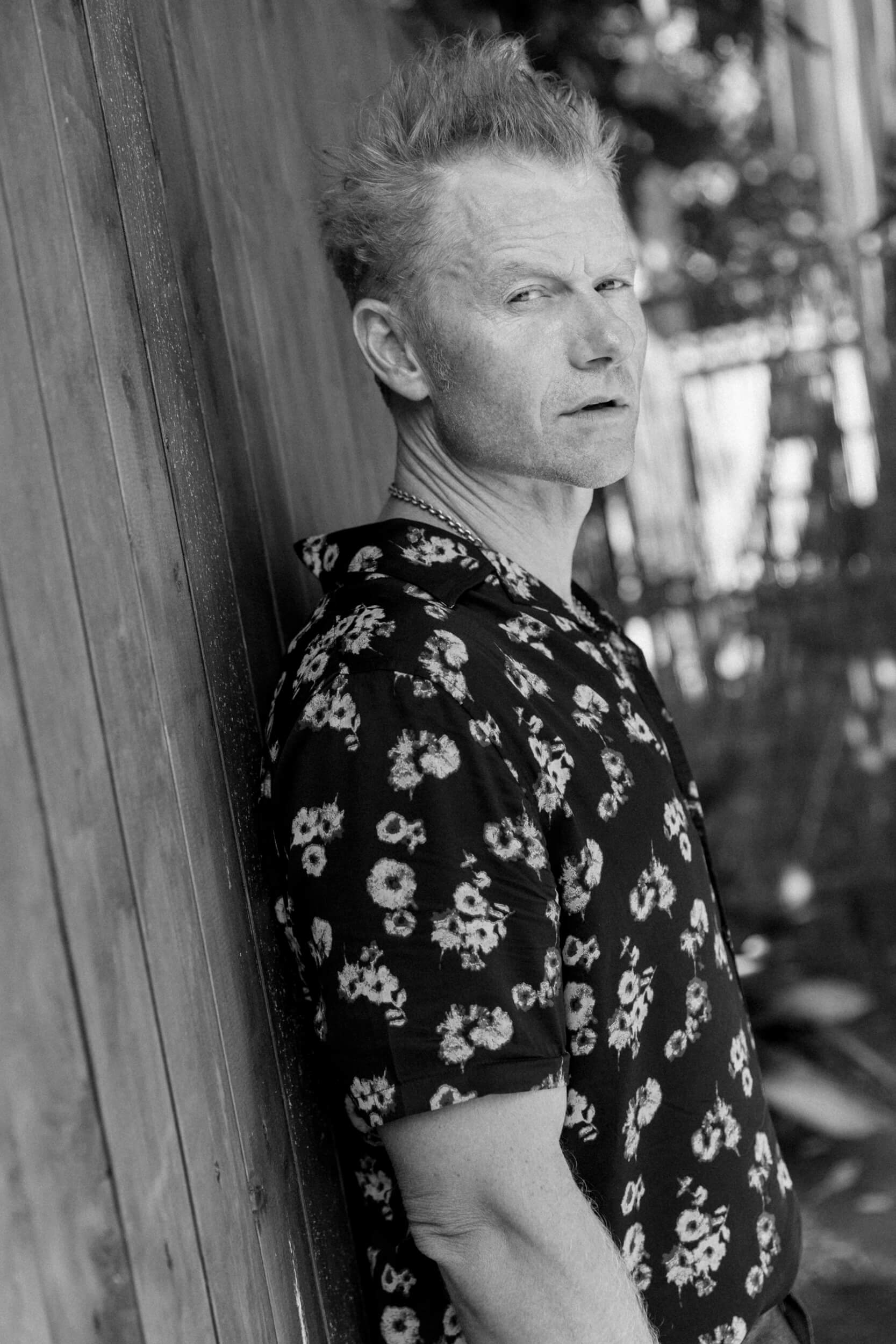
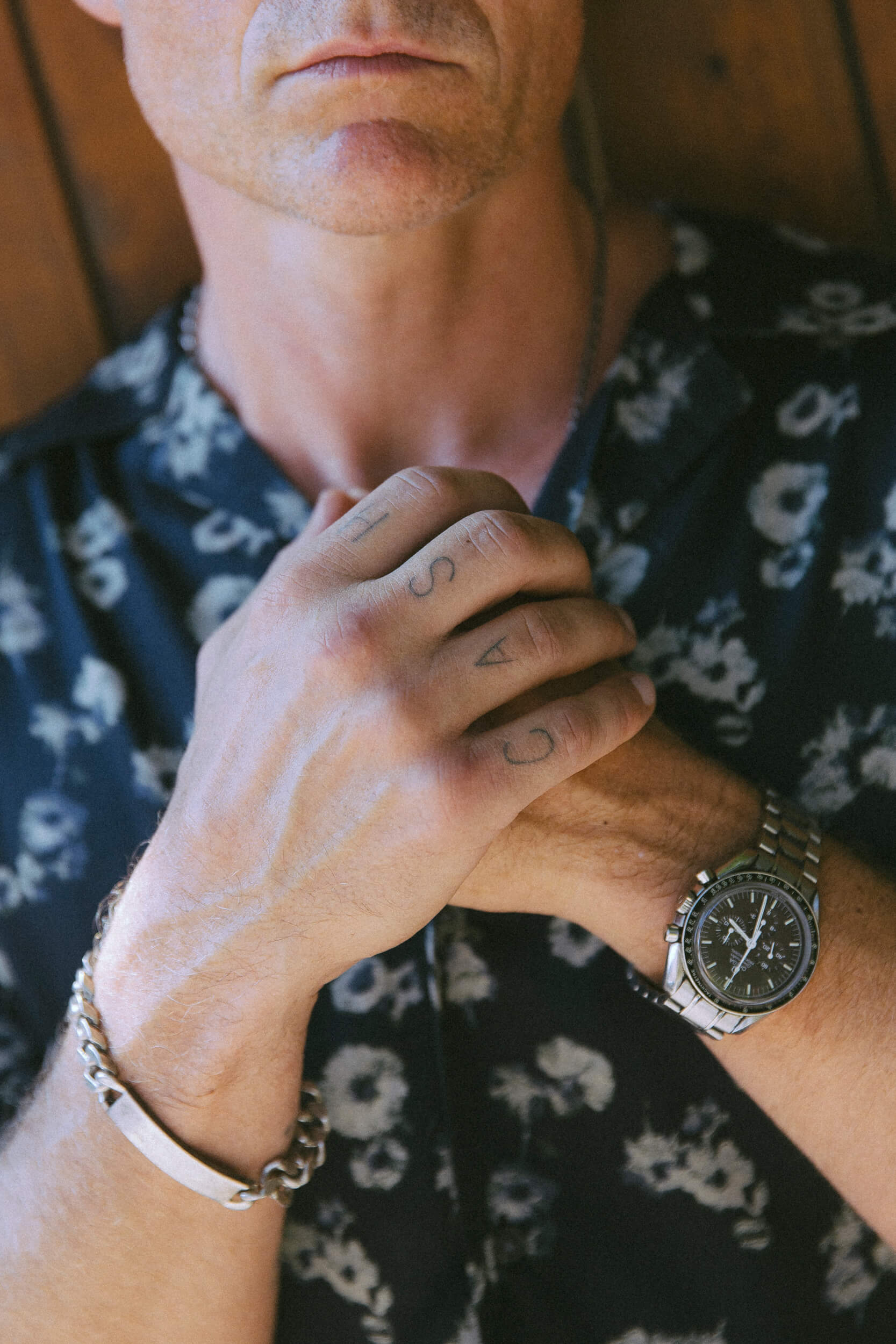
What does it mean to you to feel comfortable in your skin?
That’s the question of life, isn’t it?
I honestly don’t know. I’m still trying to be comfortable in my own skin, I think we all are, I think our characters are. Some days I’m successful at it, some days I’m not.
I try to be nicer to myself, you know? But knowing that you’re enough is a hard place to come to, and I think the danger and the trap is trying to use other things to fill that hole. Life is not easy and mental health is a real thing. I notice that if I think about myself less than I think about other people, I feel more comfortable.
What a wonderful, wonderful world it is when you’re not worried about yourself so much. And it comes back around: if you help someone else, it comes back around.
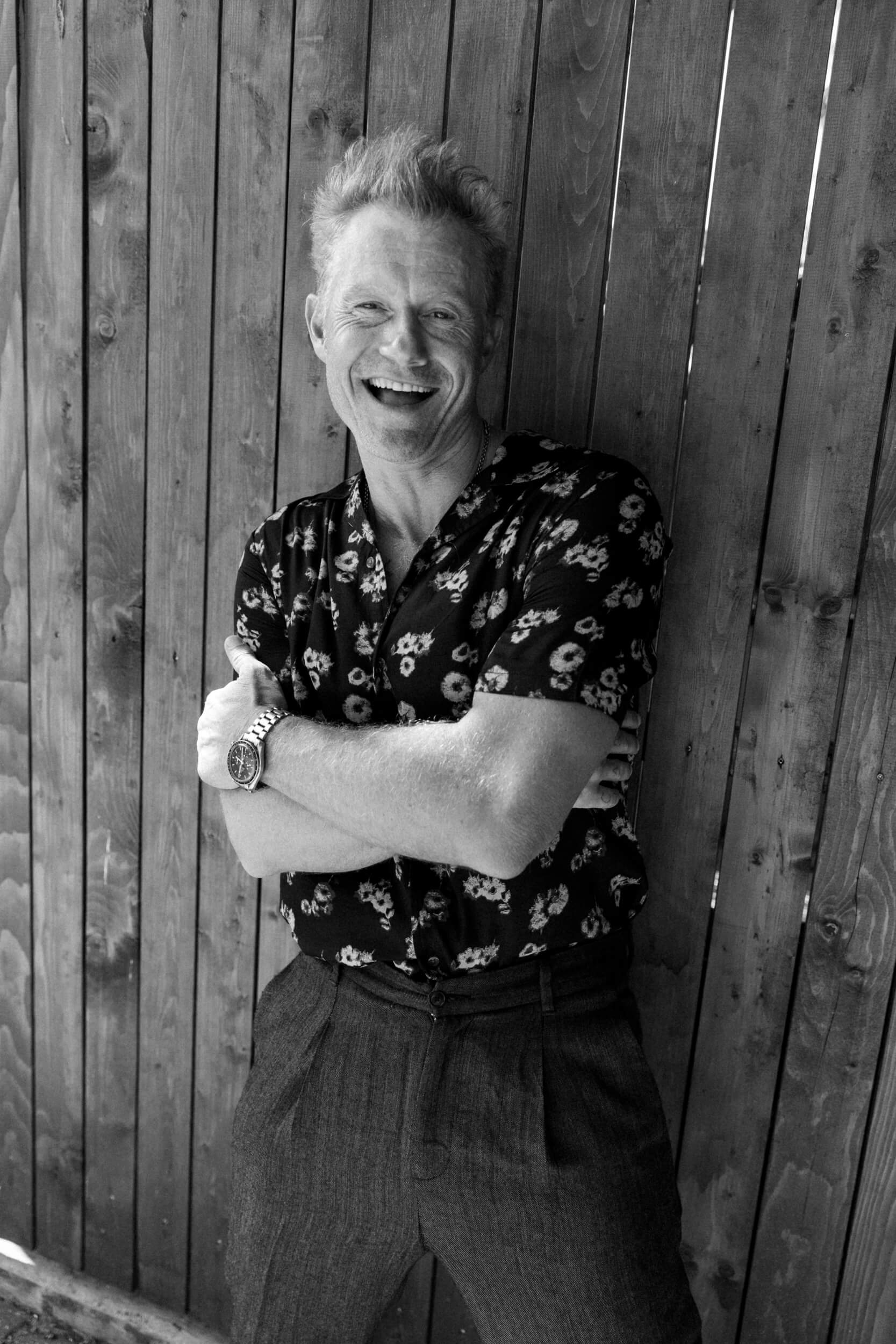
“What a wonderful, wonderful world it is when you’re not worried about yourself so much”
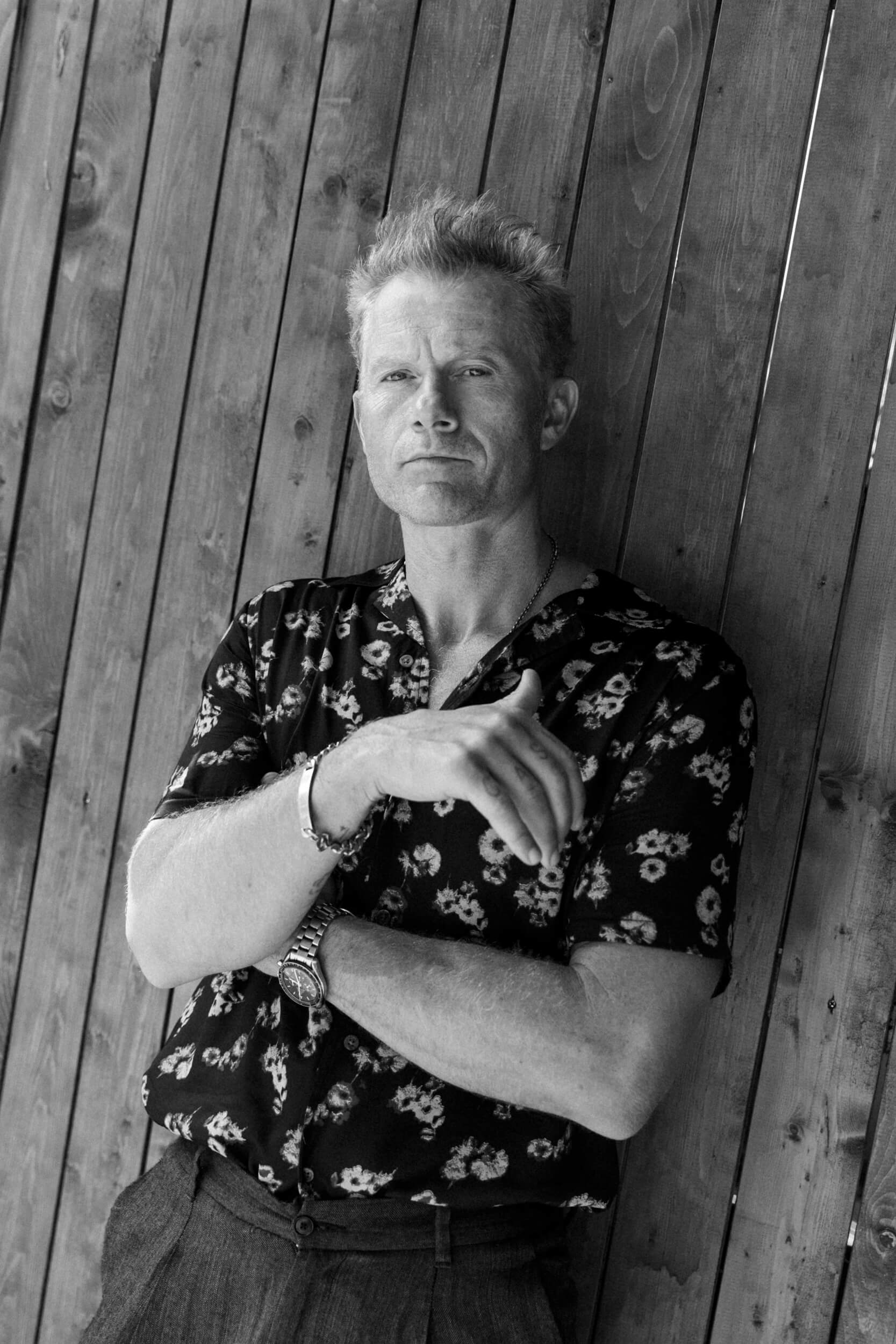
What’s your happy place?
I don’t want anybody to know my happy place because then they’re going to show up there [laughs].
I hope everyone has a happy place, and if you don’t, go find one. It could be anywhere, it could be within yourself, it could be outside somewhere.
For example, I do love being outdoors, I love energy, I love the quiet energy of being alone in the wilderness, being alone in the ocean, but I also love the energy of being alone in New York City. I love the energy of people, I love traveling, and I love being here. I love learning about other cultures. I’m grateful for the time that I’ve spent away from home because it informs me and I do listen and I take pieces back and try to bring them back to my community.
Photos by Luca Ortolani.

